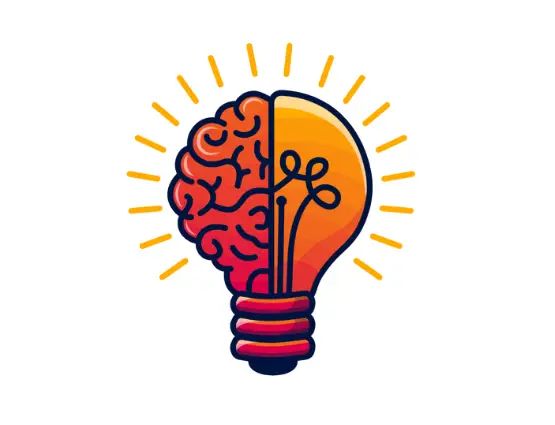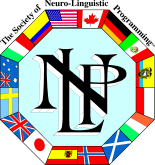

Deletion. In the Meta Model we have learnt about Deletion. In sense of the Meta Model we have learned to reveal the deleted information in a statement made by the client.
Basically everything we have learnt in the Meta Model to collect Delete, Distorted or Generalized information, we do upside down in the Milton Model.
In the Milton Model we use it in the opposite way. Remember that the Milton Model uses vague language to direct the unconscious mind into the direction we want to guide our client.
That is why the Milton Model is also referred as the Inverse of the Meta Model.
Using the Milton Model patterns, you can achieve this without needing to know what those specific achievements or experiences were. Just by saying “In the light of what you’ve done so far you already have accomplished a lot of things.” or “All the good progress you’ve had, your future becomes more and more bright.”
Lets dive deeper in the Milton Model Deletion
Remember that we use the Milton Model for hypnotic inductions. Using non-specific language aims to induce and deepen a state of trance in order to bring your client into contact with their unconscious mind. Now, let’s zoom in into the various subcategories of Deletion in the Milton Model.
Simple Deletions
In the Milton Model, simple deletions involve omitting crucial details or information in a statement, leaving gaps for the listener to fill in based on their own understanding and experiences. This creates a sense of vagueness and can allow the listener to more readily accept the suggested meaning without conscious awareness.
The listener’s “map of the world” (their internal representations and beliefs) helps to interpret the missing information, leading to a deeper understanding and potentially influencing their thoughts or behaviors
These examples are good for motivating people:
- “We’re all on the path of success,” doesn’t say where to, but it sounds good.
- “If you’re satisfied, we’ll move on” doesn’t say what they’re satisfied about, or where we’re moving on to – but often you don’t need to.
In daily life conversations we use simple deletions many times. Otherwise it would take a lot of time to say anything. In regular conversations
Comparative Deletion
“You are so much stronger now.” – stronger than what? Compared to whom? Stronger than it was a week ago? Maybe both. You can let your client take their own meanings from the statement.
You can also link two comparative deletions. Remember the Cause and Effect linkages – “The more you practice, the better you get.” This example links the activity of practice to becoming better, every time. (the More the More pattern).
And you can also use two comparative deletions when you want people to stop doing one thing and start doing another. Elvis Presley made a great song about it: “A little less conversation, a little more action.”
Unspecified Nouns or Unspecified Referential Index
“It’s going great, isn’t it?” What’s going great? Now you start to understand that the ‘it’ refers to your ever expanding knowledge ot the Milton Model.
Some things happen fast, and some things happen slow before it all falls into place. Which things? No need to specify it – it is actually, great to experience either category.
Let’s start you to think about some of the new learnings you’ve had while you’ve been learning a lot about the Milton Model, I wonder what possibilities and opportunities for useful applications you can see, and what opportunities for enhancing some aspects of your hypnotic skills you’ve already became aware of?
Now notice how that last sentence didn’t specify what the learnings were, what the possibilities and opportunities were, what applications you will see, and which aspects of your hypnotic skills you want to improve, enhance and master? There is no need to, because you will already have found your own examples of each and everything in it. In fact, it doesn’t matter specifying ‘hypnotic skills’ either, cause for certain people it will be skills, for others it will be practice, and maybe some of you are communicating through graphics or through actions, and that’s what came to mind for you, now.
Unspecified Verbs
Have you ever met someone in their job micromanaging? Unspecified verbs are the antidote to it. When someone is experienced in their job and getting good results, you don’t need to tell them exactly how to do each step in detail. They already know that. In fact, they may know better than you, as it’s their job.
So you can tell them what you want them to do, without getting too specific about how they do it. “How about we expand the sales by 50% this year?”
Another example is: “I’d like you to get at ease with the new program.”
Unspecified verbs are also a great tool for setting direction for people’s thinking. For example in sales: “Buying this machine will drastically enhance your profit” Probably you will then have to give some more information to back up the implied claim.
Here’s another example. Unspecified verbs are great for inspiring creative thinking, especially when combined with modal operators of possibility: “How can we expand revenue?” “What could help to streamline the process?”
Last but not Least
A bit of summary of this post does not hurt. Today you have learnt about the Milton Model and in specific Deletion. Whenever you start practicing either the Meta Model or the Milton Model, remember these two distinctions:
- The Meta Model seeks to bring clarity and precision to communication by challenging vagueness and identifying patterns of limiting beliefs.
- The Milton Model, aims to bypass conscious resistance and tap into unconscious processes by using language patterns that are artfully vague and suggestive.
Always remember, to increase your efficiency as a NLP Practitioner, know your positive intention for the message you want to convey, build rapport and pay attention on what and how you use language. Leave people and business in a better place that where you found them, every day!
Mind Tools provides NLP Practitioner and NLP Master Practitioner Trainings and Certifications. We educate you according to the renowned, latest and highest standards set by the Society of NLP. We will train you thoroughly in all the corners of Neuro-Linguistic Programming and some extras we learned from Richard Bandler directly.
- Mind Tools Co., Ltd.
- Deletion
- All
- Anchoring
- Coach
- Gathering Information
- Leadership
- Life Coaching
- Milton Model
- NLP
- NLP Deletion
- NLP Meta Model
- Top




